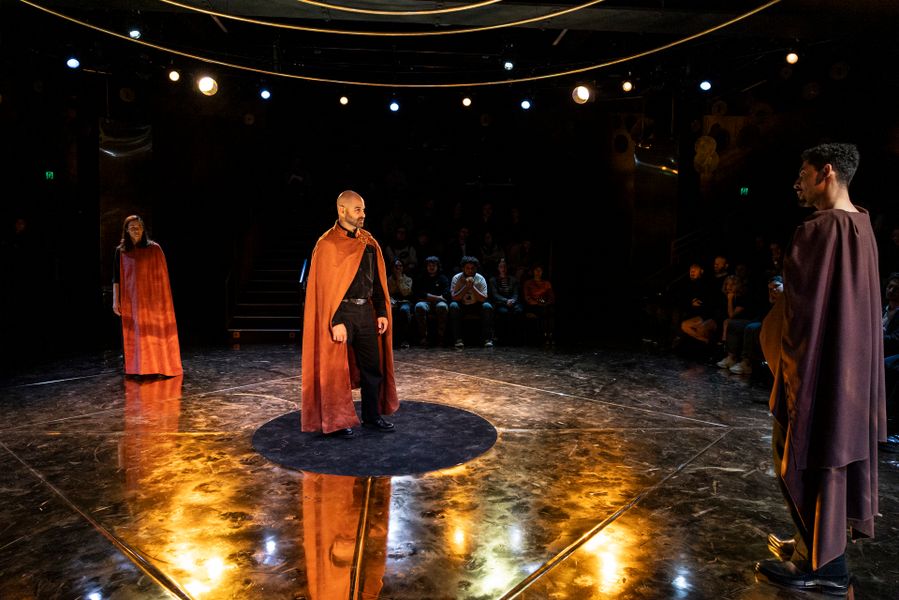

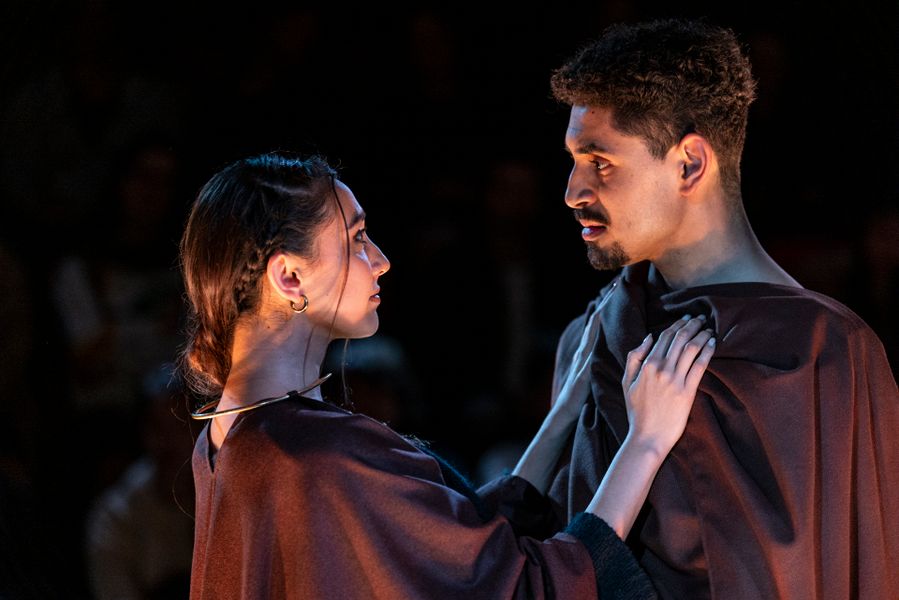

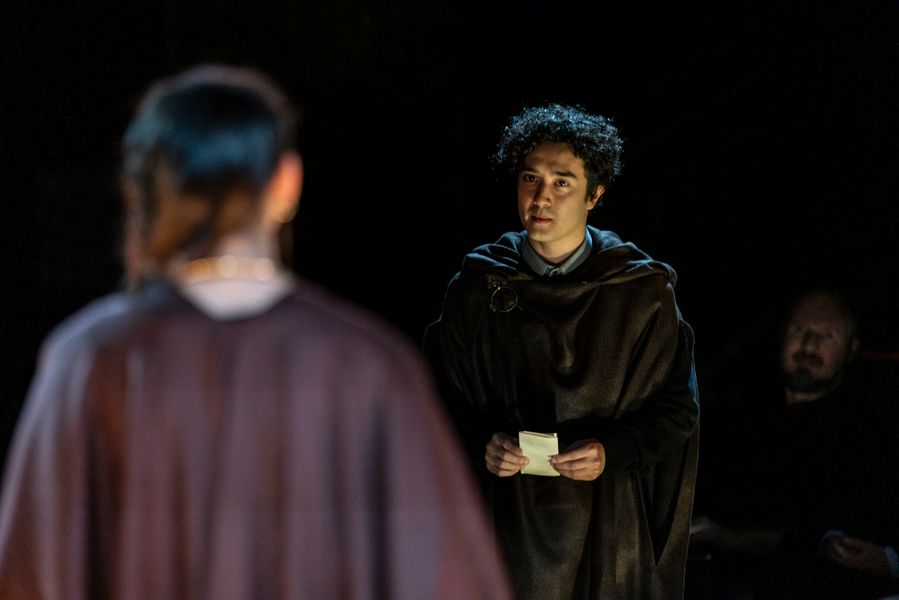
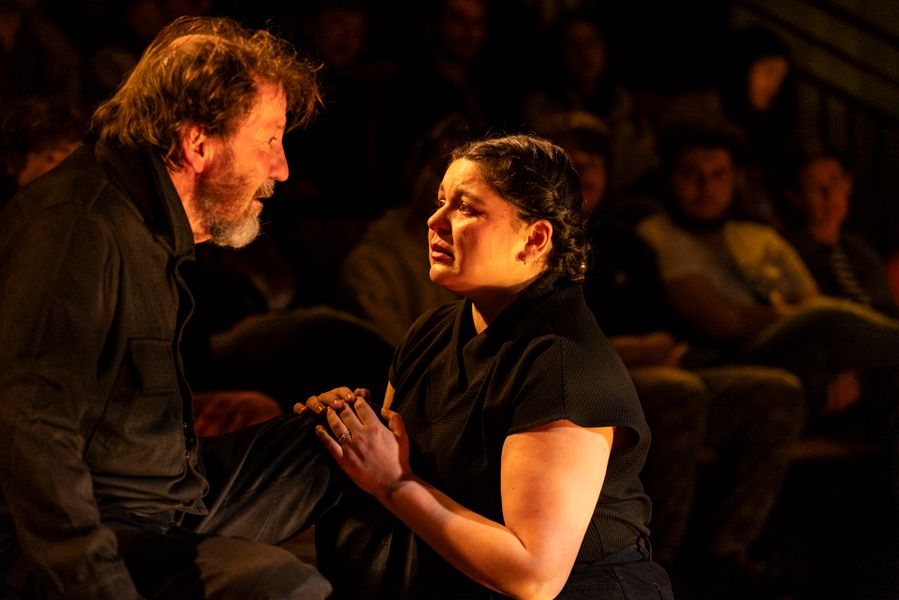

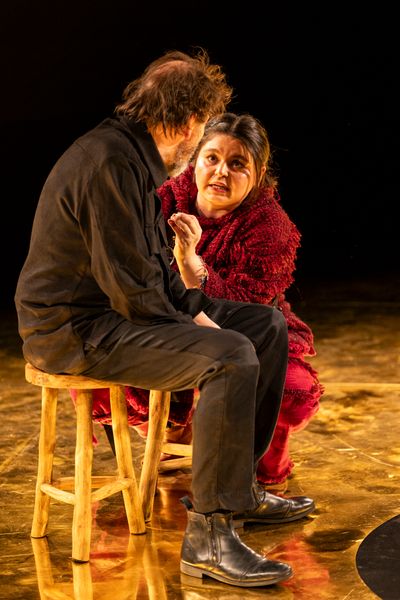
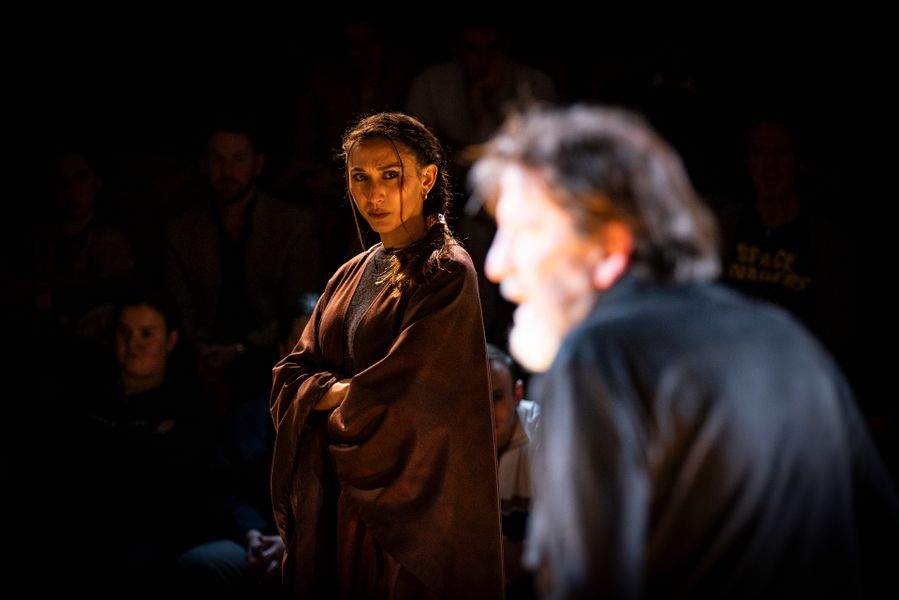
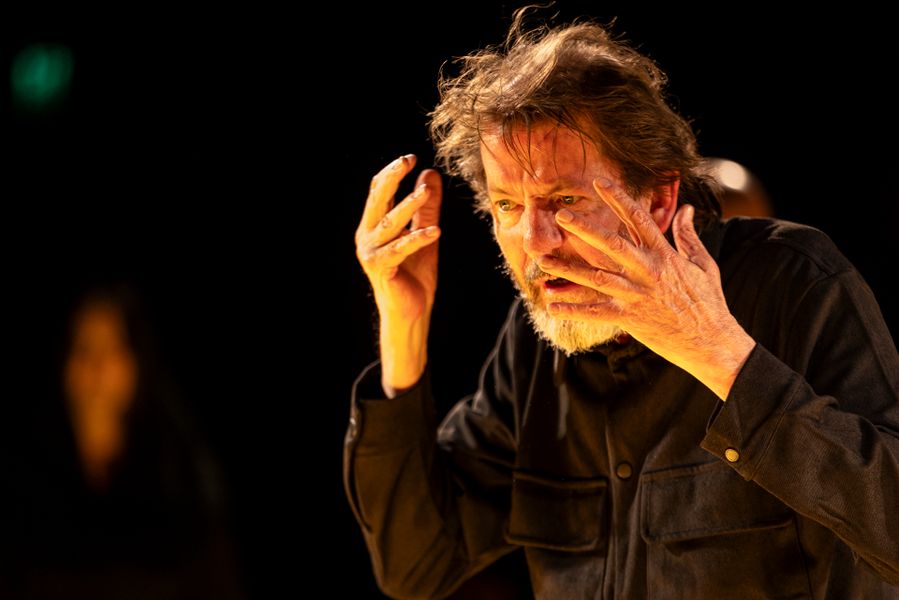

Director Peter Evans explores the king's journey and the context behind this production of King Lear.

King Lear was written relatively late in Shakespeare's life, 1606. But the concerns in the play are the same as Shakespeare had been exploring his entire career. Feudal monarchy to absolute monarchy, the strengths and weaknesses of dynastic succession and, perhaps most pointedly, the inability of the king to hear the truth.
King Lear's journey is not dissimilar to Richard 2, Henry 6, even Richard 3; the limits of power and the loneliness of kingship. Shakespeare doesn't diagnose Lear as a narcissist, as we might. His behaviour is part of the job, and has stood him in good stead for a long and seemingly stable reign. Lear is respected and feared and loved. However, his belief in his own power is misguided, perhaps even a little nuts. Lear believes he has the ear of the gods, that he can command the storms, and most tragically, that the love and respect he's received from his daughters as the king will continue when he is merely the father. King Lear is stripped down, his fall is great, from king to father to houseless old man. With that fall comes a degree of wisdom, beautiful moments of humility and clarity, and much of the play's poignancy.










I am often asked as we present each new production, what is the relevance of this play today? I can only presume this has always been asked of directors, however it feels like this question has gained more power and urgency in recent years, as if the work must argue for itself, make a case for its continued presence. This can often lead artists to search for contemporary parallels, making the play explicitly about some current concern. The plays are then reduced, drained of their mystery. Because they are mysterious. King Lear speaks to any age or culture simply by being political. Succession is serious for any government or business and must be navigated carefully. Lear creates the circumstances for a power vacuum and chaos, where the ambitious and self-interested flourish. A production doesn't need to make these explicitly contemporary for an audience to find themselves reflected.
And, as always, Shakespeare expresses the political in the personal. Most of us will have some experience of aging family members, difficult fathers, or perhaps ungrateful and selfish children. The play's power is to locate these experiences in history — these things have ever been thus, and negotiating them is difficult.
We know King Lear was first presented at court at Christmas time, which is a delightful idea. The play was famously rewritten with a happy ending in the 1680s, and was performed that way for over 150 years. Late 19th and early 20th century critics disagreed about the play wildly. Dr Johnson granted its magnificence but refused to read or see it because it was too sad. Some championed it as a Christian parable of suffering and endurance even with its pagan setting. By the middle of the 20th century and after two world wars the play was adopted by the absurdists as a nihilist masterwork, fittingly depicting the gods as silent. King Lear is open to all these interpretations, they all have merit; this is what makes the play endlessly interesting. Shakespeare finds new audiences in each new era, or as is often said, we find ourselves in Shakespeare anew.

Peter Evans is Bell Shakespeare’s Artistic Director. For Bell Shakespeare Peter has directed Romeo and Juliet, Macbeth, Hamlet, In A Nutshell, A Midsummer Night’s Dream, The Miser, Antony and Cleopatra, Richard 3, Othello, As You Like It, The Dream, Tartuffe, Phèdre, Julius Caesar, The Tempest, The Two Gentlemen of Verona, and Intimate Letters with the Australian Chamber Orchestra. Peter was Associate Director at Melbourne Theatre Company from 2007-2010, directing Clybourne Park, A Behanding in Spokane, Life Without Me, Dead Man’s Cell Phone, The Ugly One, The Grenade, God Of Carnage, Savage River, Realism, The Hypocrite, Blackbird, Don Juan In Soho, Who’s Afraid of Virginia Woolf?, The History Boys, Don’s Party, The Give And Take, Dumbshow and The Daylight Atheist. Other theatre credits include Pygmalion, The Great, Fat Pig and The Give And Take for Sydney Theatre Company; Hamlet, Rosencrantz And Guildenstern Are Dead, King Lear, Copenhagen, Proof, Muldoon and The Christian Brothers for New Zealand’s Court Theatre; The Daylight Atheist for Queensland Theatre Company; The Yellow Wallpaper and A Poor Student for the Store Room at Malthouse Theatre; Jesus Hopped The A Train for Red Stitch Actors Theatre; Kiss Of The Spiderwoman for Theatre Adami at the SBW Stables; and The Dumb Waiter for the Studio Company at Belvoir St Theatre.